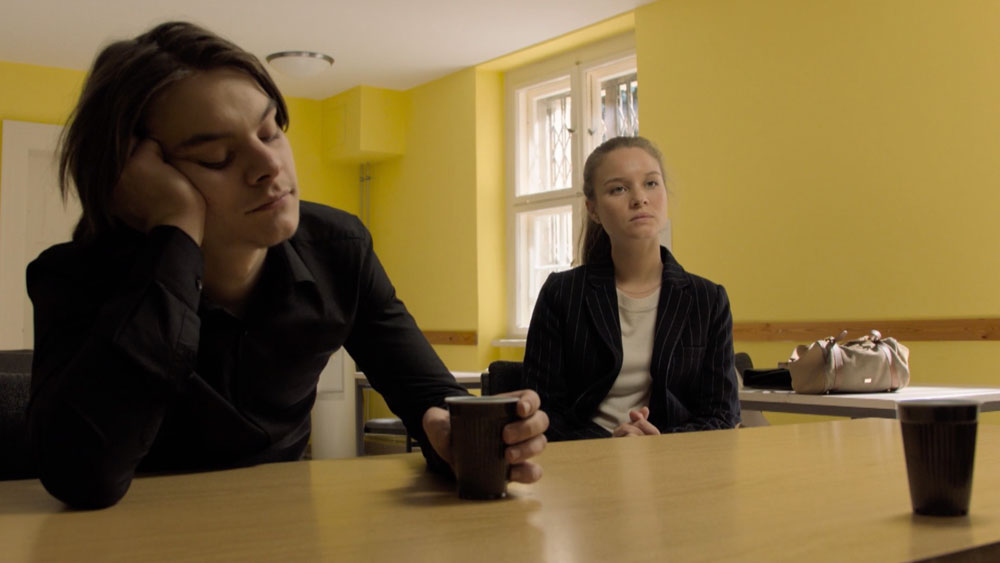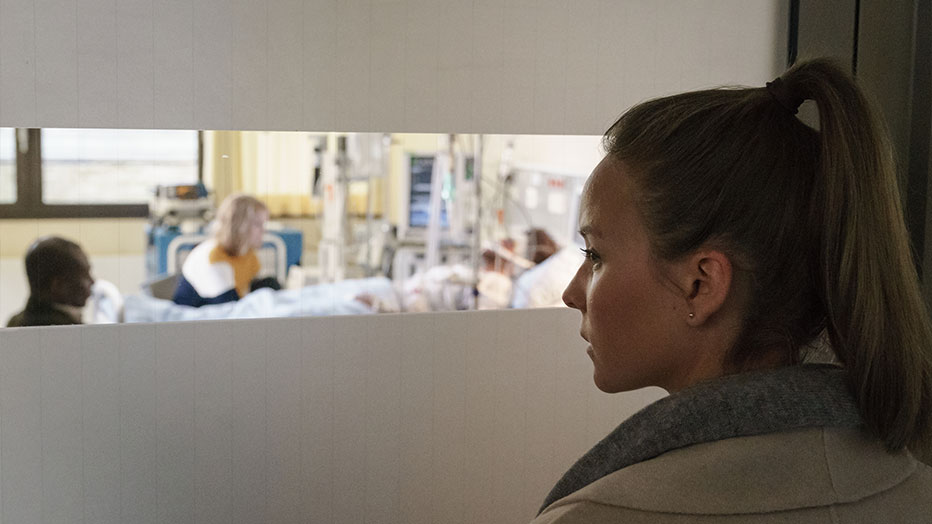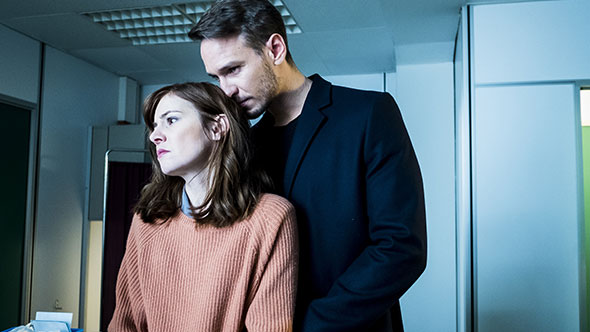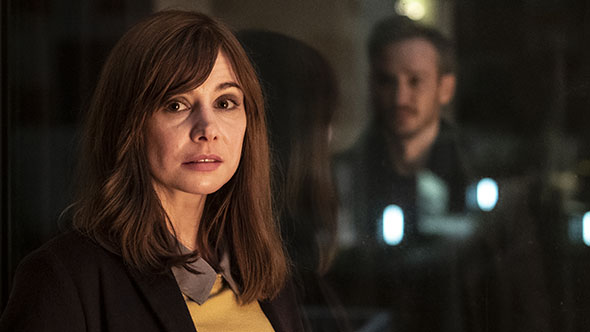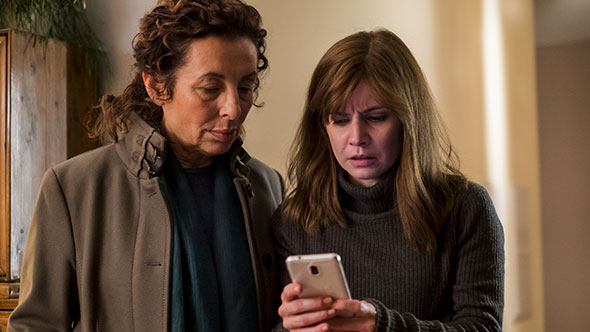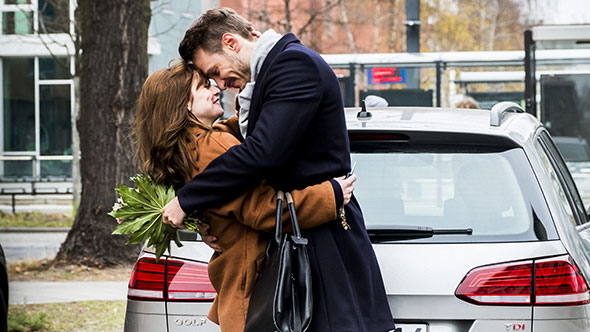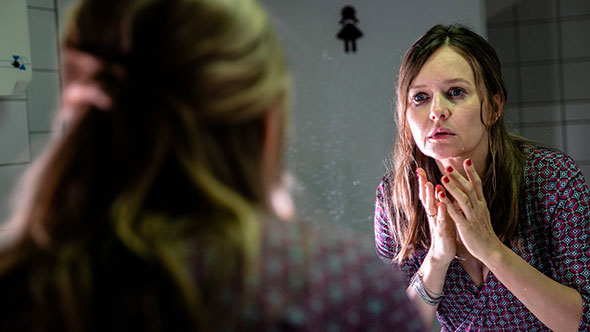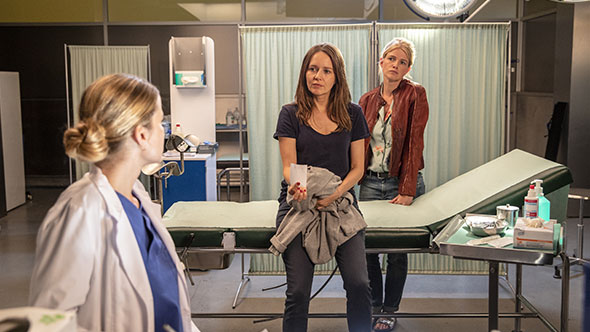Sustainability Magazine
The three fictional stories in "Lautlose Tropfen", "Dein Leben gehört mir" and "Ein ganz normaler Tag" depict fates that are shared by scores of victims: SAT.1 uses three new theme-based movies to raise awareness about spiked drinks, stalking and intervening when others are threatened – with support from the federal and state police’s crime prevention units.
It’s a gray winter day; dusk is falling. Rain patters against the streetcar windows. Nicole Wegmann, a sales assistant in a drugstore, is on her way home after a long day at work. Hans Armbruster, a retiree who got on a few stops earlier, is reading a crime thriller. The doors are already closing when two teenagers drop into the seats in front of him at the last second. One sports a leather jacket and cap, and the other is holding a beer bottle. Kevin and Mike are horsing around and then start verbally abusing Armbruster. When the pair discover Meike and dark-skinned Isaac in the back of the streetcar, they leave Armbruster alone and move on. The retiree breathes a sigh of relief and goes back to his book. Even as Mike begins hurling vile insults at Isaac and shoving him. Other passengers murmur among themselves. “Come on, leave them alone, they’re just kids,” a man hisses at his companion as she makes a move to intervene. The provocation threatens to escalate and starts to get physical. And one question hangs over everything: Intervene or ignore? Step bravely in front of the aggressors and risk getting in harm’s way? Call the police? Or avoid trouble, just keep staring out the window and hope the whole thing blows over fast?
Witnesses to such attacks ask themselves questions like these every day. In Germany alone, countless cases of violence and vandalism occur on a daily basis, often for no apparent reason. In 2018, the police registered 1,131,088 street crimes nationwide. This represents a six percent decrease compared with 2017 (1,203,124 crimes). Yet people recall the cases of Dominik Brunner in Munich in 2009, or Tugçe, the college student beaten to death in Offenbach in 2014 when she stepped in to help another girl who was being harassed by two men. Fueled by incidents like these, public discussion heats up again and again over a term that is fraught with meaning: “civil courage,” or intervening when there is trouble.
For Iris Ohain of the Munich police’s office of prevention and victim protection, this kind of courageous intervention is the linchpin of her day-to-day work. Ohain, the deputy head of the unit, feels the term means far more than bravely stepping up for humane values in public. She describes “civil courage” as “one of the mainstays of a functioning society; without it, peaceful, civilized coexistence would not be possible.” Ohain has been with the police for many years and currently works in Munich’s prevention unit, which was one of the very first of its kind in Germany when it was set up in 1997.
Ohain and her team provide advice and support when someone has fallen victim to a crime. Their main task, however, is to offer a range of tips as part of a program that includes behavior-based prevention and technological/physical deterrents. They help people learn how to act in threatening situations and prevent them before they can occur, such as with domestic violence, sex crimes, con games or burglaries. “We try to prevent crimes from happening in the first place.” It’s all about educating people, so it starts in the mind. The team’s main tools to accomplish this are lectures, events, a broad-based program of free courses for adults, along with special seminars for teachers designed to help them instill a lasting awareness in children and teens about key topics – including the question of how to act when you are the victim of or a witness to a threat or attack in a public place.
‘Civil courage’ is one of the mainstays of a functioning society; without it, peaceful, civilized coexistence would not be possible.
Iris Ohain
Deputy head of the Munich police’s office of
prevention and victim protection
“We make the basic distinction between self-defense – meaning how to behave if you yourself are attacked – and ‘civil courage’ as intervening in an incident that you witness between third parties,” Ohain says. Munich’s police force has been offering the general public special courses in intervention for several years. “The courses are very popular,” Ohain remarks. Her observation contradicts the frequent accusation that helping people who are in danger is considered less and less important in our increasingly egotistical society. “Crimes committed in public scare people, of course,” Ohain says. The reasons bystanders most often use to justify looking away are insecurity and ignorance. “So we try to give people the security they lack: We use role-plays to practice the correct behavior in various situations, give concrete tips and also raise their awareness of potential danger.” This is important because anyone can find themselves in a situation that calls for intervention – whether as victim or witness, alone on a dark street or in the presence of other people on public transportation. Which brings us back to Isaac.
In his case, the other passengers’ halfhearted attempts to help are too little too late. When the streetcar stops, there is blood everywhere. Retiree Hans Armbruster stares at the scene before him speechlessly, unable to grasp what has happened. Shattered glass. Sirens. Isaac is unconscious as EMTs storm into the streetcar to perform CPR on him. His girlfriend Meike kneels by his side, weeping quietly. Her desperate cries for help have faded away. Not until the two perpetrators were already brutally beating Isaac did fellow passenger Nicole Wegmann pull out her phone and call for help. Too late for Isaac.
This is the shocking end to a provocation that escalated out of control, as described in the SAT.1 movie “Ein ganz normaler Tag” (“A perfectly normal day”) in stark detail – a fictional story in this case, a bitter reality in many others. It is an uncomfortable subject that leaves the viewer asking the disturbing question, “What would I do?”

Kaspar Pflüger
Managing Director SAT.1
we are taking a strong stand – not once but three times – and building on the tradition of our successful theme-based movies about domestic violence, organ donation and cyberbullying.

Sonja Gerhardt (left), Stefanie Stappenbeck (center) and Josefine Preuß challenge viewers and users to take a stand.
This drama about stepping in to help is one of three theme-based movies SAT.1 is using to raise awareness for socially relevant topics. The three fictional stories told in “Lautlose Tropfen” (“Silent drops”), “Dein Leben gehört mir” (“Your life belongs to me”) and “Ein ganz normaler Tag” (“A perfectly normal day”) depict fates that are shared by many of our society’s victims: spiked drinks, stalking and the hesitant reactions of many people who witness violence. These are topics that touch viewers: The SAT.1 films were seen approximately 5.3 million times on free TV in spring 2019 (viewers aged 3 and older). “We use the moving stories of strong women to draw attention to important issues and shine a public spotlight on injustices,” says SAT.1 Managing Director Kaspar Pflüger. “With the new theme-based movies, we are taking a strong stand – not once but three times – and building on the tradition of our successful theme-based movies about domestic violence, organ donation and cyberbullying.”
Under the banner #WirZeigenHaltung (we take a stand), SAT.1 is using an overarching flanking campaign together with the movies’ stars, Sonja Gerhardt, Stefanie Stappenbeck and Josefine Preuß, to challenge viewers and users to step up. Germany’s federal and state police’s crime prevention units are lending their support. Harald Schmidt, head of the Commissioner’s office, says, “TV is a source of information and entertainment for many people. When the two things go hand in hand, the actions the police recommend will ideally stick in viewers’ minds. That is one way TV content that is made with a serious approach can help educate people about crime.”
How effective is this educational tool? Very, as Ohain explains in the context of a recent incident. She recounts a crime prevented on the subway by onlookers and the intended victim doing the right thing: In the end, the young woman was separated from her assailant and the perpetrator was ultimately arrested. “We need to talk much more about cases where bystanders have intervened to effect a positive outcome to the situation. And these cases are much more frequent than you would think. After all, each and every one of us can contribute to living together safely and peacefully as a society.”
More information about the topic can be found online and at your local police station:
Strong women, powerful stories
Sly psychological terror
He is attentive, attractive, almost perfect: In Hannes (Vladimir Burlakov), the doctor Malu (Josefine Preuß) appears to have found Mr. Right. But when Hannes’s behavior grows ever stranger, Malu leaves him – and a nightmare begins: Her ex intrudes into every sphere of her life. Leaving no trace, he drives the otherwise confident young woman crazy, entangles her in his lies and destroys her credibility, until even other people close to Malu question her sanity. By reversing the roles of perpetrator and victim, Hannes the stalker gains more and more control and leaves the police with very little room to maneuver. “These elements of the SAT.1 thriller “Dein Leben gehört mir” (“Your life belongs to me”) reflect the reality many stalking victims experience,” stalking expert Sandra Cegla says. A former police officer and expert witness on stalking in the German Bundestag, she advised the writers and cast during filming. Additional context was provided in the SAT.1 report “Verfolgt und bedroht – wie Gestalkte leiden” (“Followed and threatened – how stalking victims suffer”) that aired right after the movie.
No memory
Seven former schoolmates are celebrating their 20th class reunion. Franziska (Stefanie Stappenbeck) is looking forward to the party with her old friends. But the morning after brings a bitter awakening: Franziska was drugged and raped during the night. No traces. No clues. No memory. Yet she wants the perpetrator caught and brought to justice – an all but futile endeavor. This is a fate that the protagonist in the SAT.1 drama “Lautlose Tropfen” (“Silent drops”) shares with many victims. Since the drugs can only be detected in the human body for a few hours and the victims are frequently unable to provide reliable statements, police and doctors attempting to shed light on the crimes usually find that their hands are tied. With brutal honesty, the film confronts a topic that all too often remains in the shadows: the illegal use of sedatives, assaults on people thus rendered helpless, the credibility of victims that is frequently called into question and the way the authorities handle it all.
